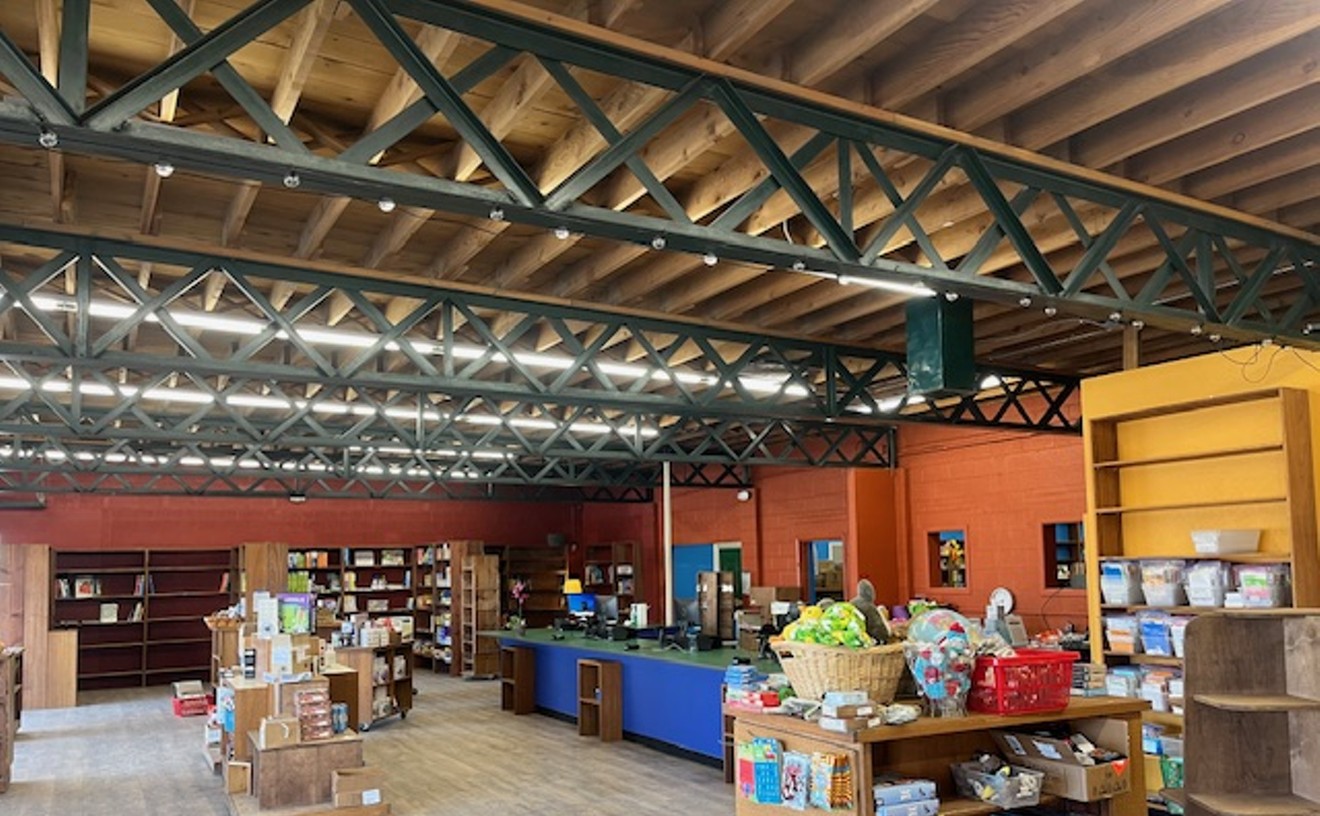See also: Dahlia Square could become a garden spot -- but right now plans are sowing dissension
While she does not hunt -- until the last two decades hunting was men's work in her community -- she has brought some of the gardening traditions of her indigenous ancestors to a small plot at the Eastside Growers Collective in northeast Park Hill.
Salazar Monk spent the first three years of her life in New Mexico, before moving with her mother to Aurora. There her family struggled to maintain their traditional hunting practices that were under attack by the U.S. government, which outlawed century-old, sustainable hunting methods, calling them "poaching," a term that evokes safari hunters gunning down elephants for ivory. But these laws are more often used to persecute impoverished indigenous communities attempting to maintain their traditional ways of gathering food, she says.
Salazar Monk identifies as a Christian, though she does not believe that excludes other traditions. A lot of her spirituality comes from her practice as a gardener and her scientific interest in the lives of plants. She connects with others through the lessons she learns growing food and medicine, and says she finds commonality with people of various faiths at the community garden: Muslims, Christians, Rastafarians and atheists alike.
Salazar Monk has lived in northeast Park Hill for fourteen years and spent many of those years escorting her four children from swimming lessons to community activities. On the parenting circuit, she befriended Faatma Mehrmanesh, mother of three and urban farmer.
The two formed the Eastside Growers Collective (see Dahlia Square could become a garden spot -- but right now plans are sowing dissension ), which set its sights on a plot of land beneath Liggins Tower, Park Hill's lone high-rise housing seniors. Zion Baptist Church owns the land, and Salazar Monk approached her stepfather, minister at the church, for permission to garden there. He agreed.
At the garden, Salazar Monk grows kale, collards, onions, cabbage, cucumbers and green chiles as well as a variety of medicinal and culinary herbs: basil, sage, marigolds, calendula, rue and horehound. She has studied a range of traditional healing practices, everything from herbalism to massage, and recently completed a biology degree. She runs Brown and Green Botanics, a small business focusing on botanical concoctions, remedies and education.
While her children are not as immersed in gardening, "thave a healthy knowledge of food and where it comes from," she says.
And Salazar Monk not only grows plants, she's building a grassroots, black and brown community base at the Eastside Growers Collective and is working to harness the "know-how" of residents at the community space. She has more respect for community elders than for the new breed of urban farmers.
Read on for more from Salazar Monk
"Gentrifiers present themselves saying, 'We'll invest in your community for your own good.' Ultimately the investment is not for the people in the neighborhood. It's for people who want in the neighborhood," she says.To resist that gentrification, she ensures that Eastside Growers Collective keeps everything homegrown and focused on the neighborhood.
Her gardening methods are all natural -- some might say organic -- but she avoids that word because of its ties to food elitism, she says. For pest control, Salazar Monk uses companion planting. She works to improve the soil by keeping it weeded and rotating the crops. She adds compost most years, though this year she decided not to. She lets the soil rest other years.
Pests plague her garden -- they plague all gardens, and every year she asks herself why she's going to plant vegetables when so many may get eaten. Pests come and go in cycles; some years they win, and other years they don't.
She plants flowers and herbs that attract beneficial, predatory insects such as ladybugs that keep the aphids off her brassicas and greens. She has no need for chemical pesticides that kill off beneficial and harmful insects alike. And while she admits she does not see the purpose of every insect in the garden, she believes that even those that most aggressively consume her plants have an important function in the ecosystem.
"Everything will do well in its time. It's okay," she says. "We sow our seeds with our hopes and dreams. We water them and see what happens."
From gardening, she has learned to be flexible and she acknowledges how little control she has over outcomes in life.
She has also learned that sometimes weeds can be helpful. For example, dandelions fix nitrogen in the soil and have medicinal value. She refuses to pick them until they are about to go to seed.
At the beginning of each season, when she turns the soil, she looks in awe at the creatures that live in the dirt and thinks of the bacteria and all the living beings she cannot see that make the earth smell so fertile.
"The smell of the earth is one of the best things to experience in the morning. It's better than a cup of coffee," she says.











